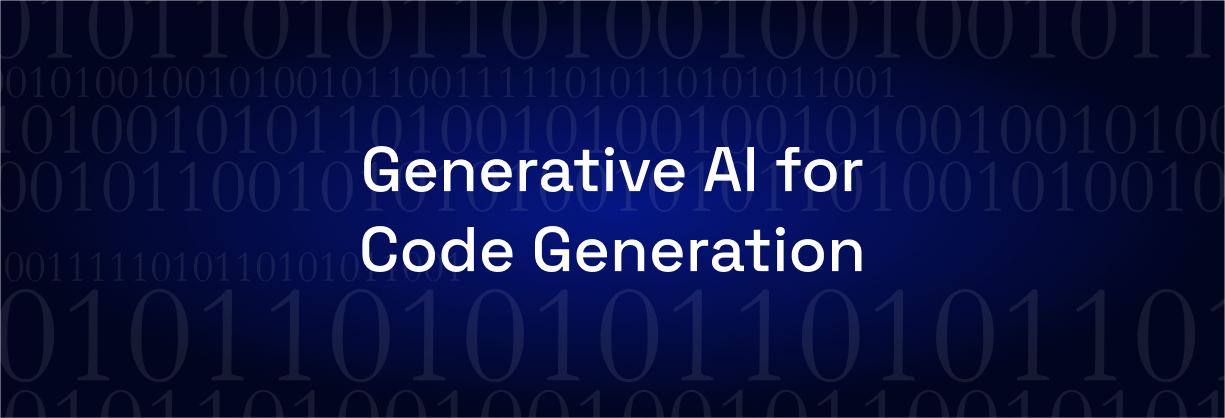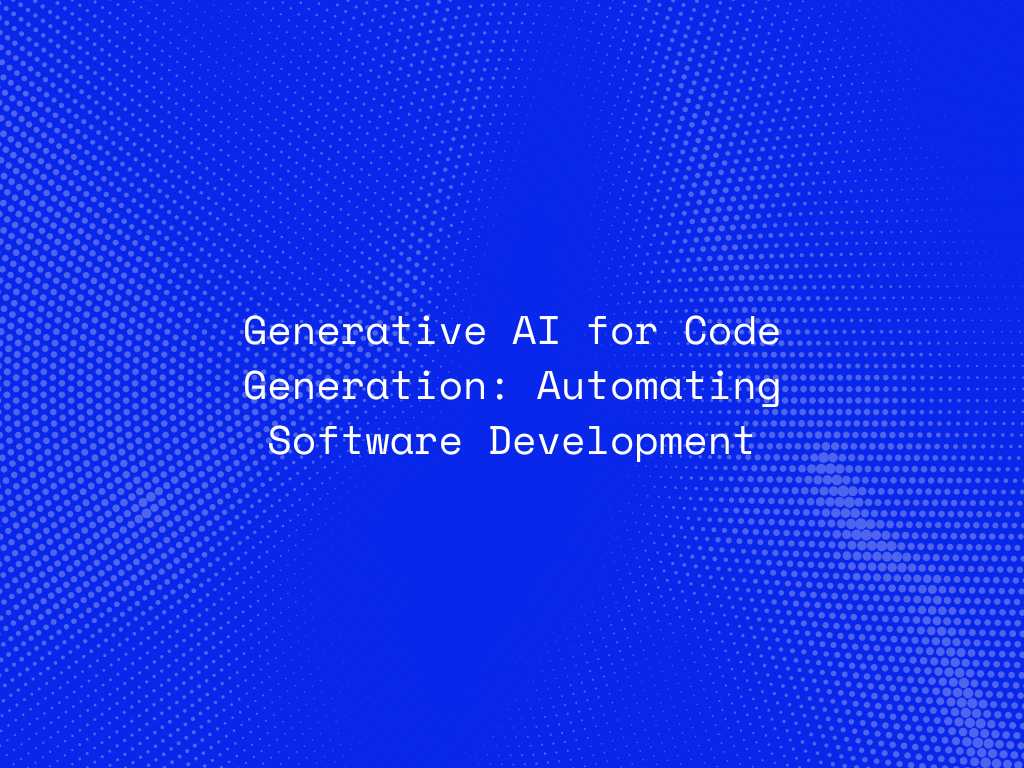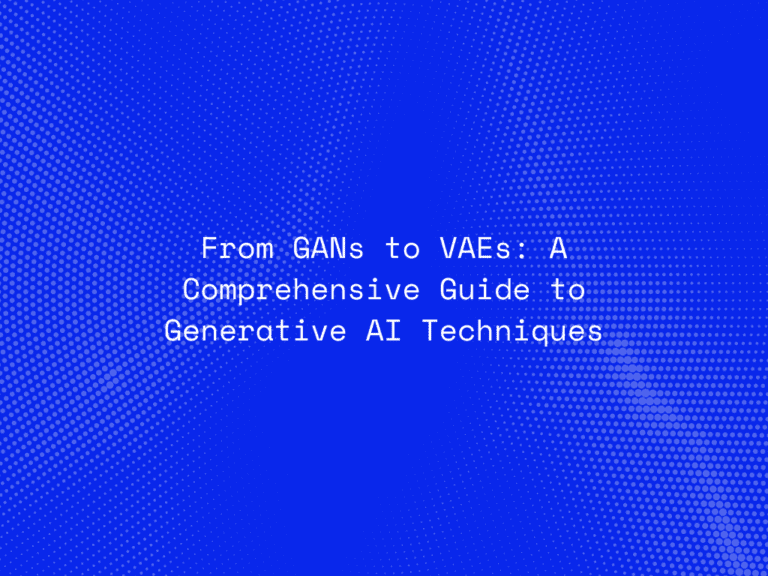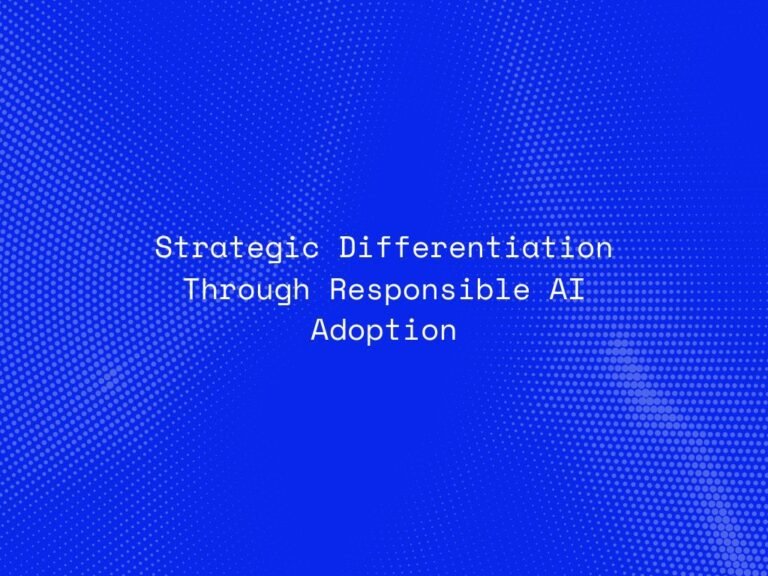In today’s fast-paced software industry, developers are constantly looking for ways to improve productivity and reduce manual coding efforts. Generative AI, powered by advanced machine learning models, is transforming the way software is built by automating code generation, minimizing errors, and accelerating development timelines. This blog explores how Generative AI is reshaping software development, its benefits, challenges, and future trends.
What is Generative AI for Code Generation?
Generative AI refers to artificial intelligence models that can generate human-like content, including programming code. These models, trained on vast datasets of code repositories, can understand programming languages, suggest code snippets, and even generate entire functions or applications. Technologies such as OpenAI’s Codex, GitHub Copilot, and Google’s AlphaCode are prime examples of how AI-driven coding assistance is becoming mainstream.
How Generative AI Works
Generative AI models leverage deep learning architectures, such as transformer-based neural networks, to analyze and predict code structures. By learning from millions of publicly available and proprietary codebases, they can autocomplete functions, refactor code, and even suggest logic enhancements. These AI models are trained through reinforcement learning techniques to improve accuracy and efficiency over time.
Benefits of Generative AI in Software Development
1. Accelerated Development
Generative AI significantly speeds up software development by automating repetitive coding tasks. Developers can generate boilerplate code, function implementations, and even complex logic structures in seconds, reducing overall development time.
2. Improved Code Quality
AI-powered tools analyze existing codebases to suggest optimized and efficient code, leading to higher-quality software with fewer bugs and vulnerabilities.
3. Enhanced Productivity
By handling mundane coding tasks, Generative AI allows developers to focus on creative problem-solving and high-level architecture design, increasing overall productivity.
4. Bridging Skill Gaps
For novice programmers or teams with diverse expertise levels, AI-driven code generation serves as an intelligent assistant, helping them understand best practices and write better code.
5. Faster Prototyping
With AI-generated code, developers can quickly create prototypes, test new features, and iterate on ideas faster, leading to more efficient innovation cycles.
6. Automated Code Documentation
AI can generate detailed documentation alongside code, making it easier for teams to maintain and scale projects without spending excessive time on manual documentation.

Challenges and Limitations
While Generative AI presents numerous advantages, it also comes with challenges:
1. Code Reliability and Security
AI-generated code may contain vulnerabilities or follow insecure coding practices, requiring thorough human review and validation.
2. Dependence on Training Data
AI models learn from existing codebases, which means they might replicate outdated or suboptimal coding practices if not properly trained on high-quality data.
3. Intellectual Property Concerns
There are ongoing debates about whether AI-generated code violates intellectual property laws, particularly when trained on open-source repositories without explicit permission.
4. Limited Context Understanding
AI models may struggle with understanding broader project-specific requirements, leading to code suggestions that might not fit well into the overall application architecture.
5. Potential Job Displacement
While AI enhances developer productivity, some fear it might replace junior programmers and reduce entry-level job opportunities in the long run. However, AI is more likely to act as an augmentation tool rather than a complete replacement for human developers.
Future of AI in Software Development
Despite these challenges, the future of Generative AI in software development looks promising. Advancements in AI models, coupled with better training techniques and increased human-AI collaboration, will lead to more robust and reliable AI-powered coding tools. Future innovations may include:
- AI-driven debugging and testing solutions
- Context-aware AI assistants for complete project management
- Seamless integration of AI-generated code with DevOps workflows
- More ethical and legally compliant AI training methodologies
- AI-enhanced automated refactoring and optimization tools
- Advanced natural language to code translation capabilities
Conclusion
Generative AI is transforming the software development landscape by automating code generation, improving efficiency, and reducing human errors. While challenges exist, the benefits far outweigh the risks, making AI-powered development tools an essential asset for modern programmers. As AI continues to evolve, its role in software engineering will expand, further revolutionizing the way we build and deploy applications.
Are you ready to embrace AI for your software development projects? Explore how Providentia expertise in AI/ML and Generative AI can help streamline your development processes!




